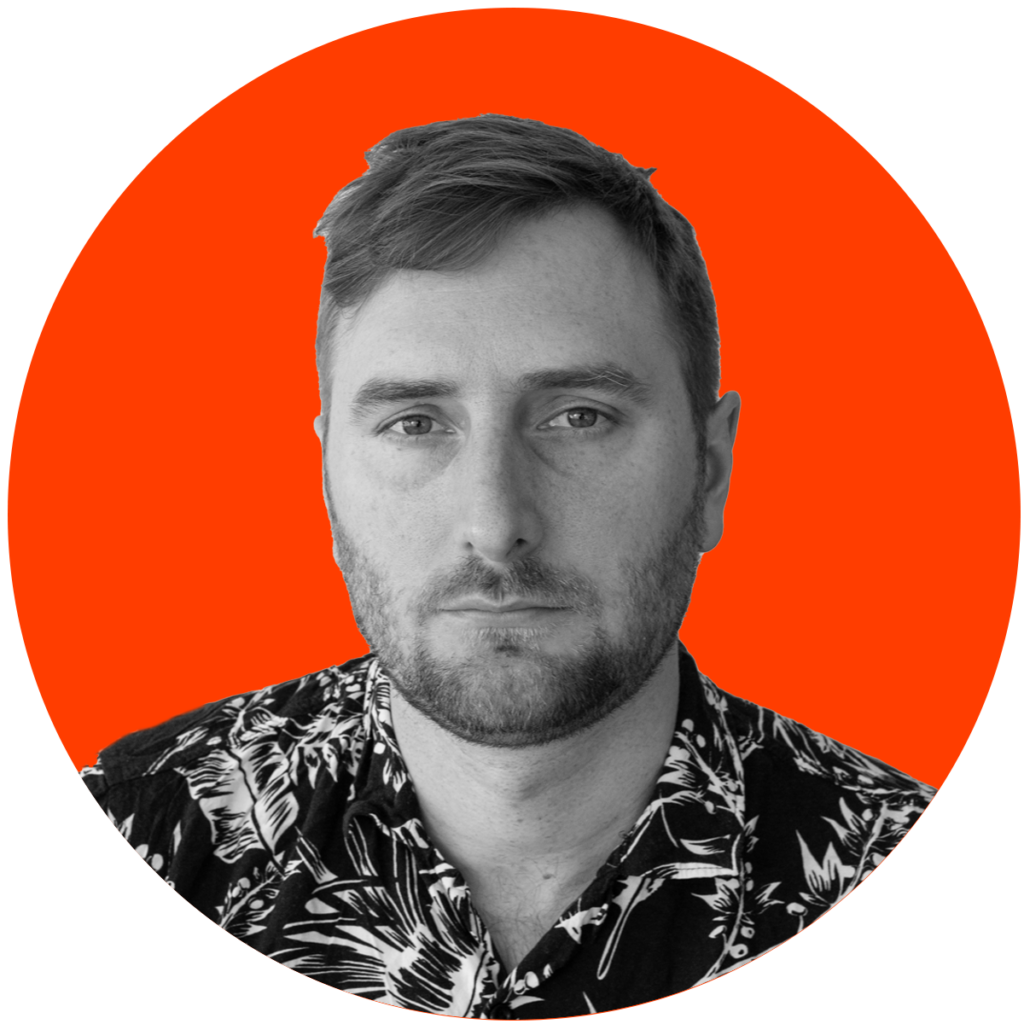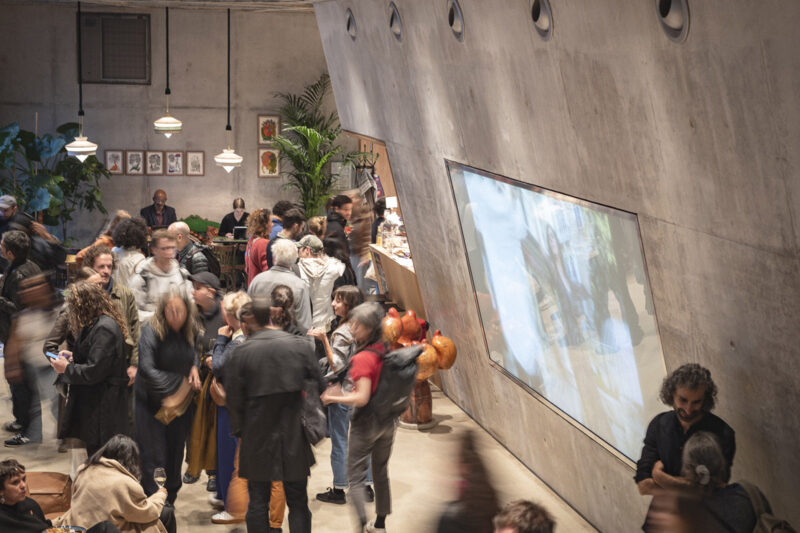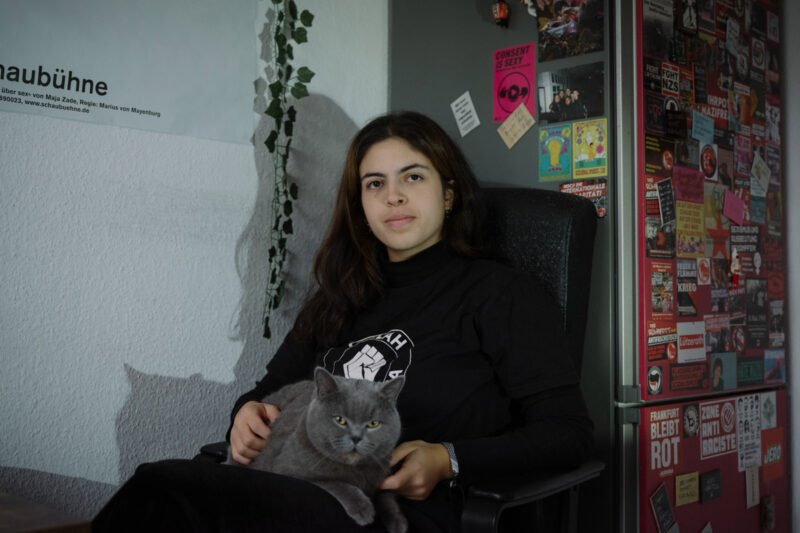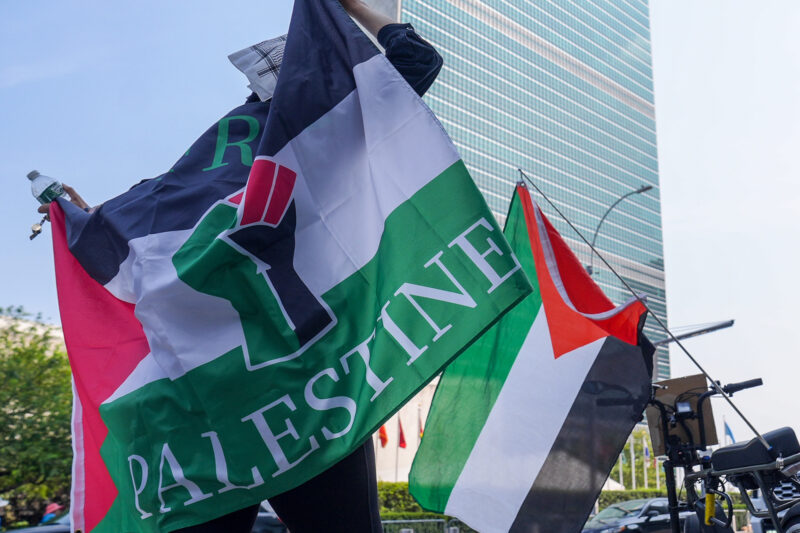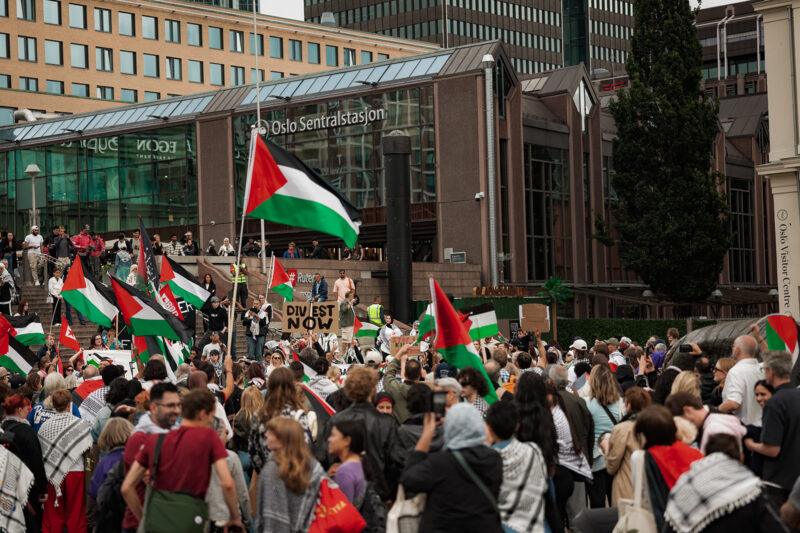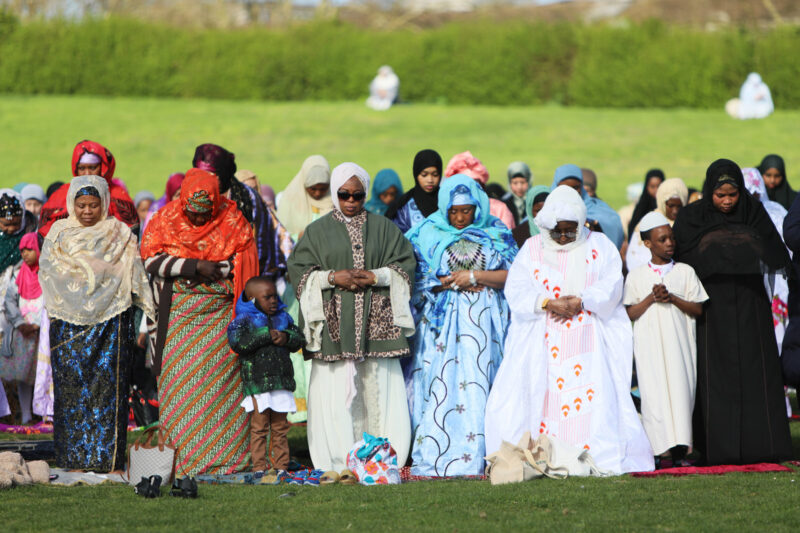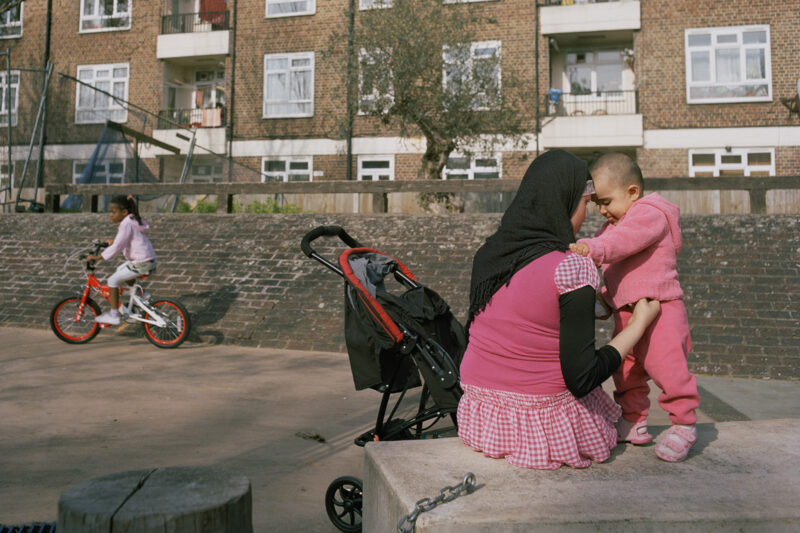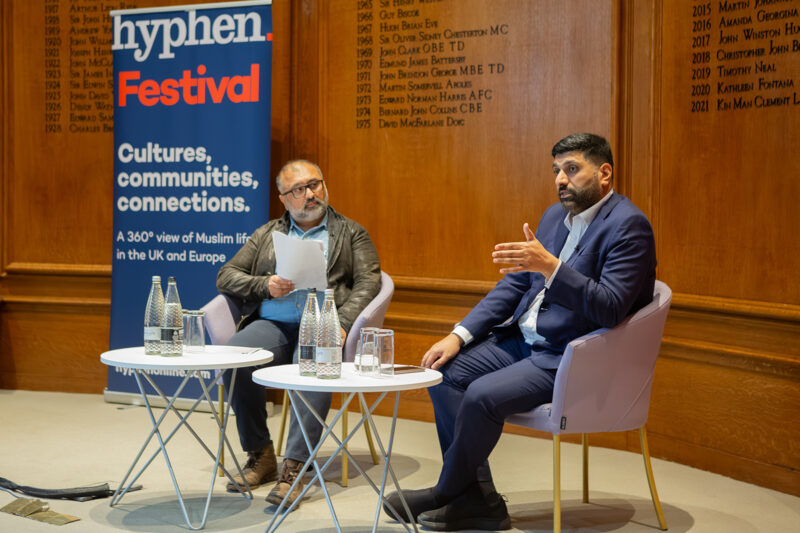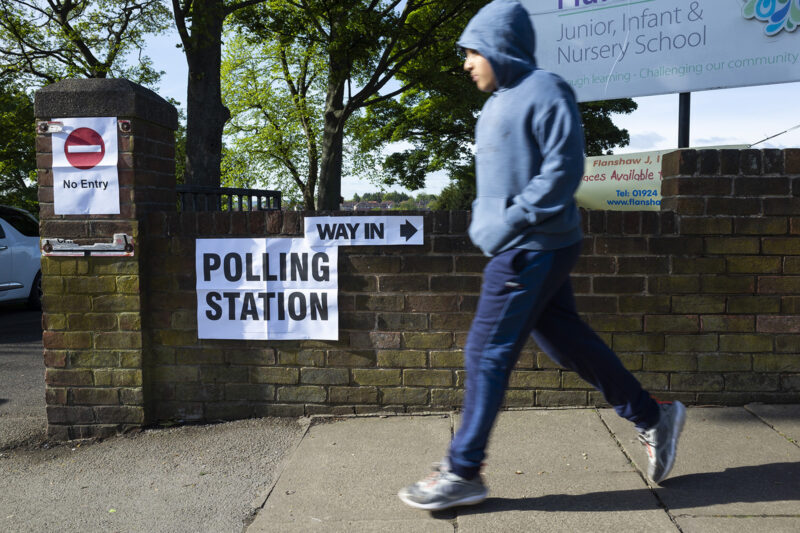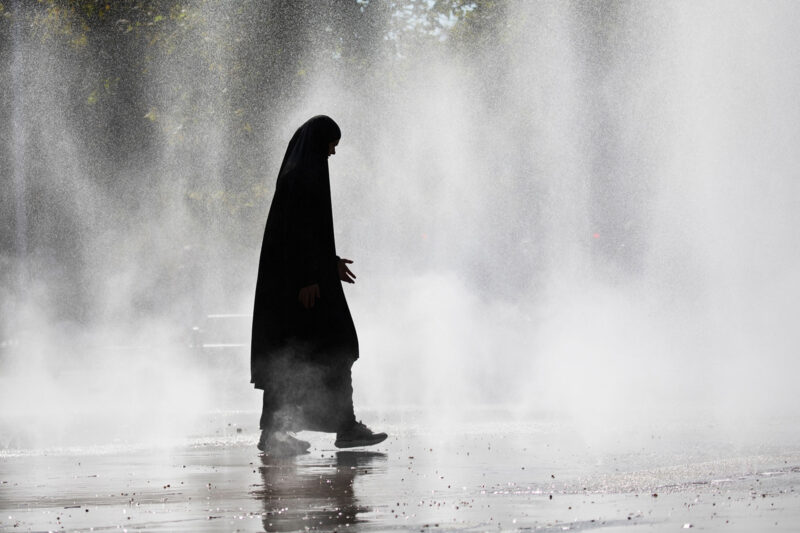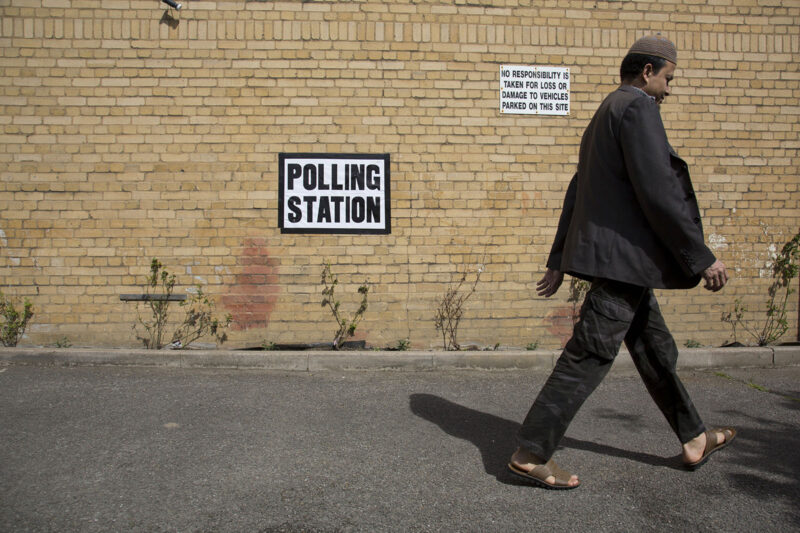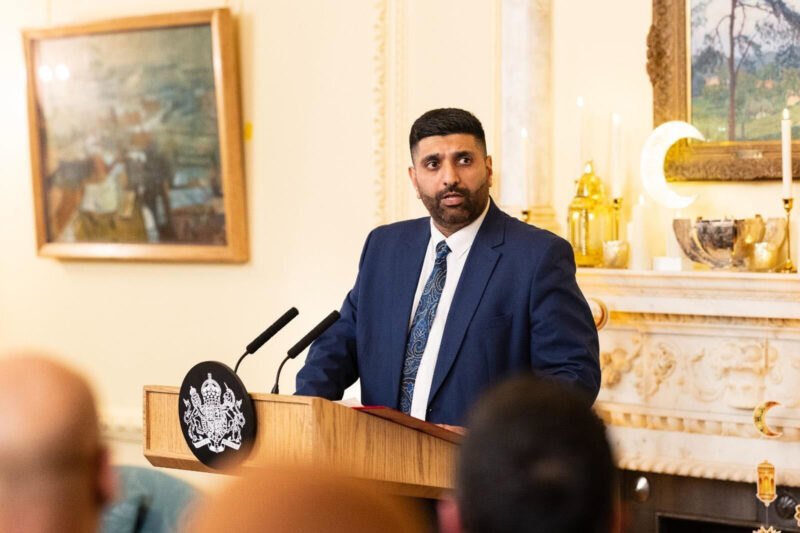Critics question the backstory of one of Germany’s leading counter-extremists
Known for his strident positions against political Islam, Ahmad Mansour is a prominent voice in a national movement against antisemitism — but what is his real story?
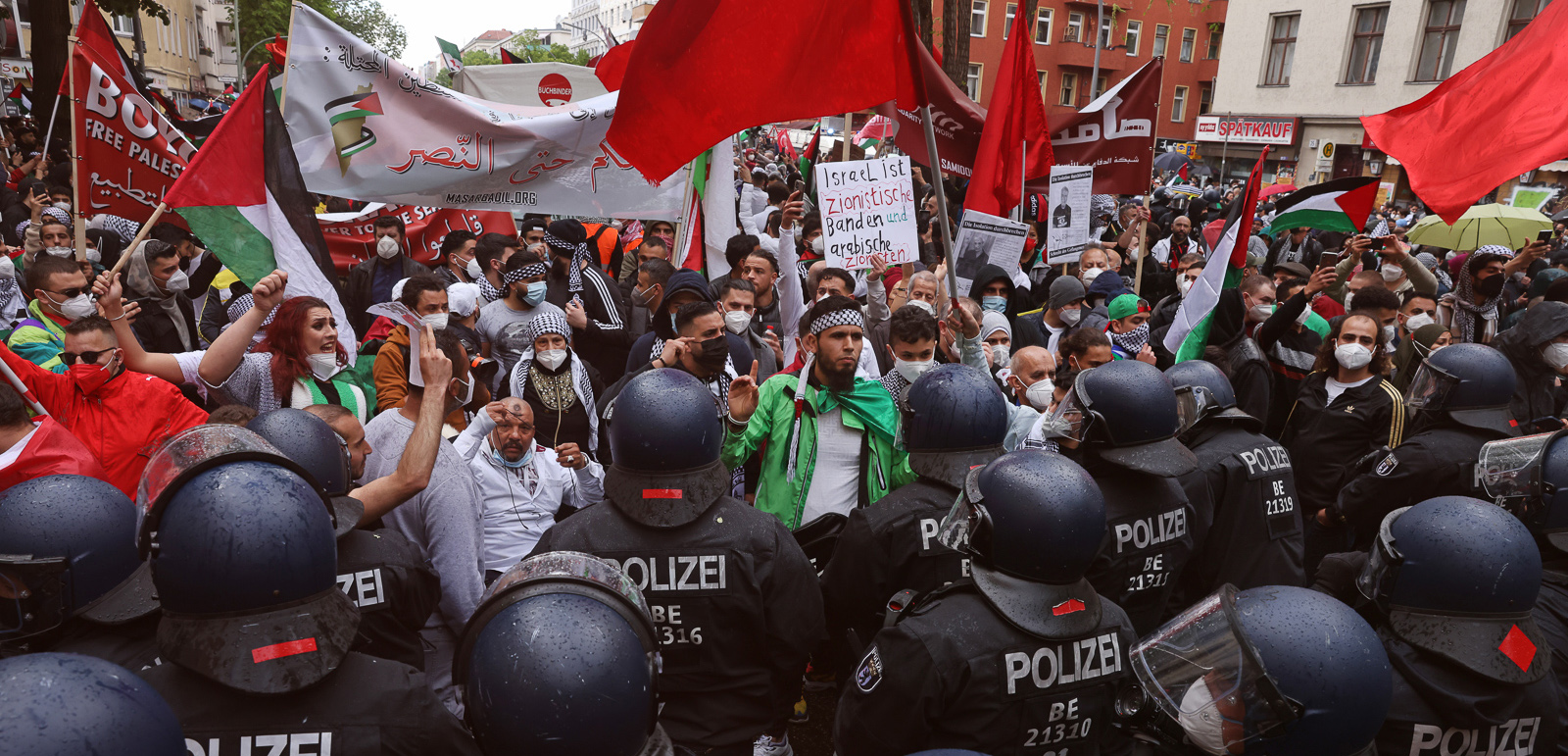
In a dusty Arab village in Israel, not far from Tel Aviv, a teenager walks with a group of friends following a bushy-eyebrowed imam through a graveyard under a silver moon. They stop at a freshly dug grave and the older man orders everyone to stand in a semicircle around the pit. “Think of your death! Think of your encounter with Allah!” he shouts, then commands the boys to jump in, one by one.
For more than a decade, Ahmad Mansour, a psychologist and prominent political commentator in Germany, has told the story repeatedly, in sometimes contradictory forms, in TV interviews, newspaper articles and his own bestselling books.
He has also related how the radical bushy-eyebrowed imam at his local mosque, eventually tasked him with infiltrating non-Muslim Israeli society by enrolling as a psychology student at the University of Tel Aviv. According to Mansour, that plan backfired when he was exposed to great western thinkers such as Sigmund Freud and Friedrich Nietzsche, and gained the knowledge, tools and life experience to leave radical Islam behind. He has since established himself as one of Germany’s leading authorities on Islamist extremism and antisemitism.
Throughout his career in the public eye, Mansour has cited antisemitism as the main cause of the Middle East conflict. He has also urged German politicians to do more to crack down on political Islam, which he views as an existential threat to western civilisation, and called for a ban on minors and state employees wearing the hijab, which he has described as a form of “abuse”.
“Islam has never integrated into another culture and won’t in Europe either,” he said on a podcast for the conservative broadsheet newspaper FAZ in 2021.
Mansour’s criticism of Muslim culture has won him huge popularity among German conservatives and an important place on the national stage. He is a mainstay of public debates about Islam and integration, whether on social media or television. With more than 70,000 followers on Twitter and four published books, he regularly appears as a talking head in German media, notably for Tagesschau, the main TV news show on the public service network ARD.
Mansour’s profile has won him both funding and acclaim for his work. MIND Prevention, his for-profit anti-extremism consultancy, received €792,000 from the Bavarian government to spend between 2019 and 2021 on deradicalisation programmes. In 2022, he was awarded Germany’s national civilian honour, the Federal Cross of Merit, for his work against radicalisation and antisemitism. When Germany’s state-funded international broadcaster Deutsche Welle (DW) faced allegations of tolerating antisemitism, owing to criticisms of Israel made by its employees, it was Mansour who was invited to head up an internal investigation.
Mansour has built his reputation and career on a narrative of growing up in an environment where radicalisation was almost inevitable, being groomed into it and coming out on the other side. However, when I visited Tira, the place where he was born in 1976 and spent the first two decades of his life, some of his acquaintances and contemporaries told a different story.
Tira is a middle-class Arab town just 35 minutes’ drive from Tel Aviv. Arabs make up one fifth of Israel’s population, have many of the same legal rights as Israelis and, while they face discrimination in the housing and job markets, live in relative harmony with the state’s Jewish majority. Raffi Massrawa, a tech worker based in Singapore who was back in Tira to visit his family, described the town in the 1990s as peace-loving and economically dependent on its Jewish-Israeli neighbours.
“Tira is not a religious place. It’s more liberal and moderate. Most people aren’t really religious. Ninety per cent of people don’t really pray.”
In his bestselling book, Generation Allah — Why We Need to Rethink the Fight Against Religious Extremism, Mansour describes his childhood there. He paints himself as an ambitious child, frustrated both intellectually and sexually by the conservative culture that surrounded him.
“Growing up in a family, in an environment that rejects sexuality, that always associates it with dirt and with sin, then of course I have longings. Of course, I want to live it out too,” he told Deutschlandfunk Kultur in 2016.
“Even as a very radical Muslim, I had longings, was curious about women, about sexuality. But I made them taboo. I wanted to fight against my urges, against the devil in me and win. This is something that seems attractive to young people.”
Mansour resented helping his grandparents in their fields and wanted to achieve more than his father, who worked in a petrol station. He felt lonely and started going to Arabic and religious instruction classes where the imam saw his potential and made him feel special, he has written.
According to multiple sources in Tira, the imam was Mahmoud Mansour Abu Khaled, a teacher of religious studies and Arabic at the local school, who died a few years ago. Khaled was a member of the Islamic Movement, a mainstream political party in Israel and the first Arab party to enter the nation’s government apparently with only tenuous links to the Muslim Brotherhood.
Today, the Abu Bakr mosque in Tira, with its swaying palm trees and turquoise interior adorned with ornate calligraphy, does not feel like a hotbed of radicalisation. As one solitary worshipper prayed, a middle-aged caretaker, who has worked in the building for decades, was shocked to hear Mansour’s accusations and rejected any suggestion of radicalism. Worshippers of any age “never heard anything extremist, no hatred,” he said of the mosque’s teachings.
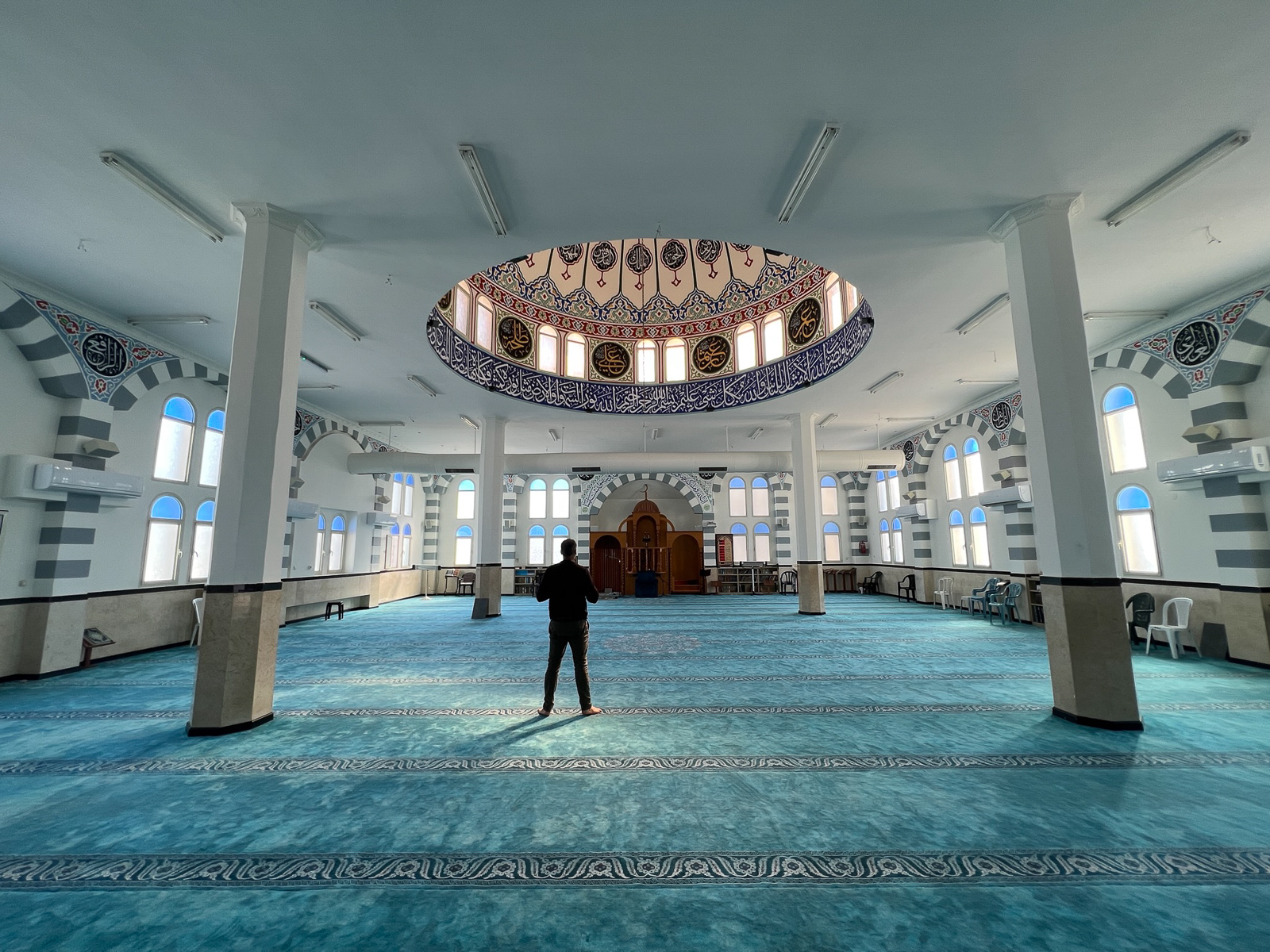
Nimer Sultany, now a lecturer in law at SOAS University of London, knew Mansour at primary school and later as a football teammate. During the period in which Mansour claims to have been radicalised, Sultany does not recall him being either particularly religious or political. Other former neighbours of Mansour remember the Abu Bakr mosque as a place for young people to play ping-pong and pray.
During a recent controversy surrounding a decision by the mayor of Cologne that allowed the Islamic call to prayer to be played once a week from the city’s central mosque, analysis by media watchdog Über Medien showed that Mansour, who opposed the move as a “demonstration of power for political Islam” due to the mosque’s alleged links to the Turkish state, appeared in the media almost three times more often than any other expert.
Stephan Detjen, former editor-in-chief of the national broadcaster Deutschlandradio, suggests that as a Muslim critical of Islam, Mansour is a useful voice for German media. “Ahmad Mansour is a much listened-to voice because he fulfils the role of a star witness who also gets involved in party politics,” he said. “You can quote him. He is explicitly critical of Muslims.”
Migration is a hot-button issue in Germany, a nation that welcomed more than one million people from the Middle East following the Syrian refugee crisis of 2015. In recent years, political parties such as the far-right Alternative für Deutschland (AfD) have seized on examples of antisocial behaviour by the country’s increased refugee population as an opportunity for electoral gains by stoking xenophobic fear. It is now the second-largest political party in Germany, with 20% of the national vote. Public opinion in the Arab countries many refugees have fled is generally critical of Israel. This difference in perspective has caused tensions between Arab migrants and the German political mainstream, within which political support for Israel is practically an article of faith.
“Germany is, for very understandable historical reasons, sensitive to criticism of Israel,” explained Eric Adamson, a former research associate for the American Jewish Committee in Berlin.
Societal guilt over the Holocaust, in which six million Jews were killed by the Nazi regime of Adolf Hitler, and support for Israel have become central to the national political discourse. In her historic speech to the Israeli parliament in 2008, former Chancellor Angela Merkel declared that Israel’s security was part of Germany’s “reason of state”.
When, at recent demonstrations in the multicultural Neukölln district of Berlin against the storming of Al-Aqsa mosque in Jerusalem during Ramadan, protesters chanted “Death to Israel” and “Death to Jews”, the public outcry was, of course, well justified. However, Germany’s rightwing press, the AfD and some conservative Jewish groups attributed the hate speech to “imported antisemitism”.
In 2022, Mansour wrote an opinion piece for the website Kulturrat under the same headline, arguing that Jews are once again unsafe in Germany. In many ways, data supports that position. In 2021, 3,027 antisemitic crimes were reported in Germany — a figure that breaks all records since the second world war. While the national media has largely attributed that rise to Muslim immigrants, figures provided by the Interior Ministry show that 84% of those crimes were actually linked to the far right.
Commissioners for Antisemitism and Jewish Life, a voluntary quasi-governmental position, comprised mostly of non-Jewish former politicians, have been appointed in 15 of Germany’s 16 states. There are now almost 650 projects aimed at fighting antisemitism through education. In 2018, one-third of the projects addressing antisemitism in Germany were focused on “Islamist motivations”.
While the rise of antisemitism may be a predominantly homegrown problem rooted in the extreme right, it has resulted in growing repression of Palestinian political organisation. In May, for the second year running, Berlin police refused to allow a demonstration in commemoration of the Nakba, the expulsion of most Palestinians from Israel in 1948. That same march was prohibited by police in 2022 on the grounds that they were preventing possible antisemitic incidents; 170 people were arrested for contravening the ban. A request by the pro-Palestinian activist group Jewish Voice to hold a memorial on the same day for Shireen Abu Akleh, a Palestinian-American journalist shot and killed by Israeli forces while reporting from the West Bank in 2022, was also rejected by Berlin police and attendees were arrested as police said the gathering was simply a substitute for the Nakba protest.
Campaigners for Palestinian rights believe that discrimination against Palestinians — around 100,000 of whom live in Germany, making the country home to the biggest diaspora community outside the Middle East — is being normalised and legitimate criticism of the Israeli state is being censored or branded as antisemitism. A 2019 resolution passed by the German parliament condemned the Boycott, Divestment and Sanctions (BDS) movement as an antisemitic organisation. High-profile artists who support the movement, including musicians such as Roger Waters, Talib Kweli and Young Fathers, have had concerts and broadcasts cancelled.
Activists have been subjected to targeted personal attacks. After being criticised online by Hamburg antisemitism commissioner Stefan Hensel, the South African Jewish artist and pro-Palestinian activist Adam Broomberg has received multiple death threats. There is no suggestion that Hensel made or supported any death threats.
“I had to change my phone number because there were constant phone calls and text messages threatening, ‘We’re gonna kill you, you antisemite’ or calling me a Nazi,” Broomberg said, adding that he had found “187”, the California penal code for murder, scrawled on a wall inside his apartment building in Berlin.
This intimidation followed a critical Instagram post by Hensel, who had previously organised a campaign to “see fewer Palestinian scarves on the street”, singling out Broomberg, a vocal supporter of the BDS movement, as an antisemite: “[He] repeatedly defames the country as an apartheid state and advocates a boycott against Israel. Nor does he shy away from legitimising terror against Jews.”
Broomberg, who is descended from Holocaust survivors, passionately rejects those accusations. He pointed out that BDS “was born as a non-violent means of resistance” and said: “These remarks are unsubstantiated. It’s libel and defamation.” Broomberg was one of those arrested by police at a protest in Berlin in May.
Quasi-governmental officials, such as antisemitism commissioners, weighing in to condemn figures who express support for Palestine are of great concern to Detjen.
“I think it’s problematic when individuals have the government’s authority to define antisemitism and decide in complicated disputes who is accused of antisemitism and who is not,” he said. “This accusation has serious consequences in Germany for good reasons. Judgments must be better justified than that.”
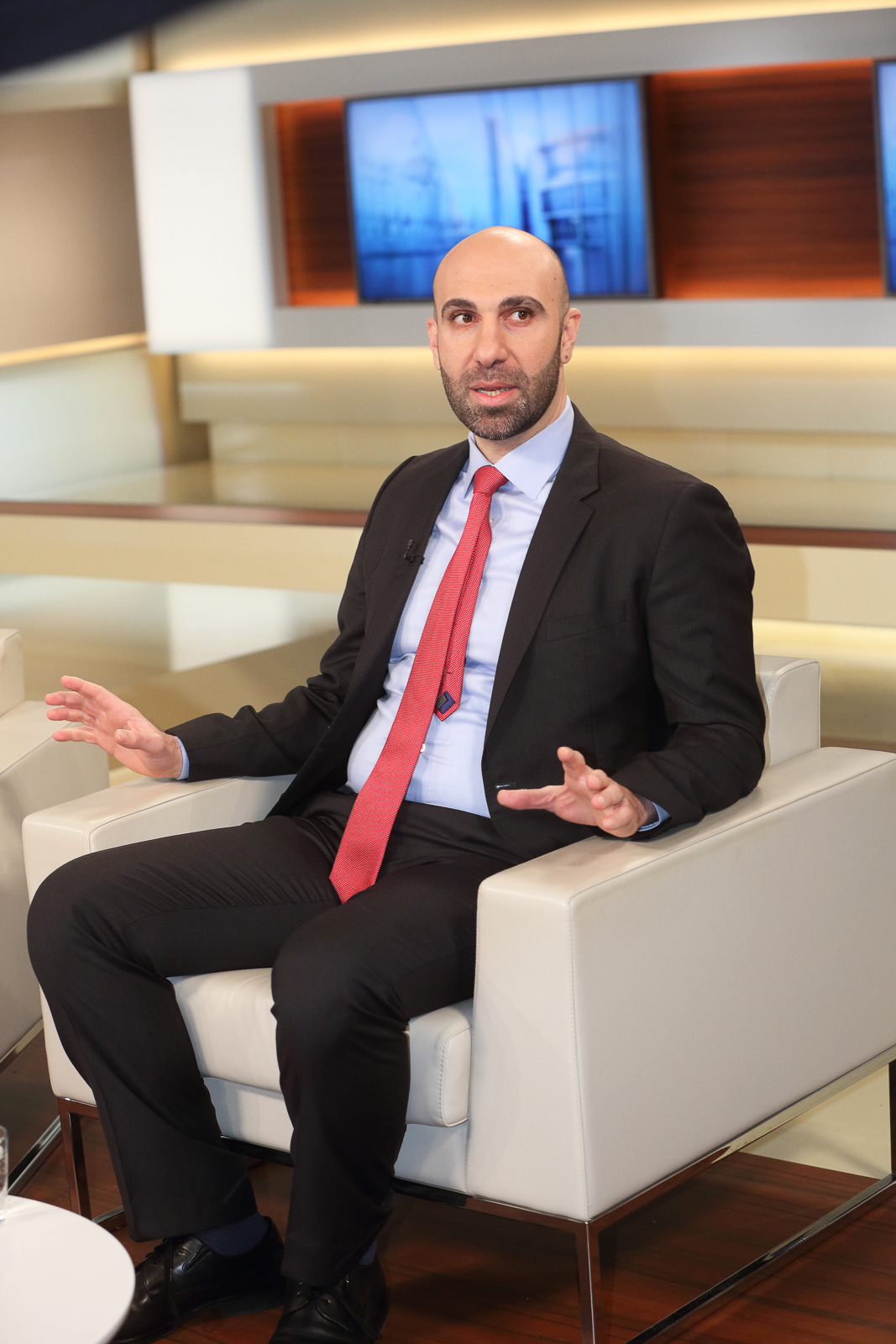
It might seem surprising that Mansour — a Palestinian — has emerged as a figurehead for a large section of German society that wishes to silence criticism of the Israeli state, but he has long been a vehement critic of his own community. In 2020, Georgetown University’s Bridge research Initiative studying Islamophobia listed him as an author that regularly portrays Arabs and Muslims as “backward and dangerous”.
Mansour has repeatedly stated that he studied psychology at the prestigious Tel Aviv University and much of his criticism of Islam is presented in scientific language, drawing on these academic credentials. In Generation Allah, for example, he wrote that radicalisation often comes from the fact that “in traditional and conservative families an often extremely authoritarian dynamic dominates”.
However, both Nimer Sultany and Muthanna Samara, now a professor of psychology at Kingston University in England, who grew up with Mansour in Tira remember him being enrolled at the smaller Academic College of Tel Aviv-Yafo. The Israeli broadsheet Haaretz has also reported that he initially studied nursing at Tel Aviv-Yafo, something Mansour has not mentioned since moving to Germany. The college has confirmed that Mansour was a student there and graduated with a BA in behavioural science in 2000.
Tel Aviv University could not confirm or deny Mansour’s claims that he was enrolled there without his consent, which we were unable to provide as Mansour did not respond to multiple interview requests for this story.
Mansour has also said he went on to graduate from Humboldt University in Berlin and then gained a masters degree in clinical psychology, which we were unable to verify with the university on the same grounds
Over the past year, a string of erratic social media posts have raised doubts — long held by Arabs in Germany — about Mansour’s credibility among the wider German public. During the 2022 World Cup, he was mocked for a now-deleted Twitter post that said a Moroccan football player embracing his mother was “an expression of patriarchal thinking”. He also posted that a T-shirt featuring the slogan “ACAB”, an acronym for “all cops are bastards”, was racist, surprising several commentators.
At the time, Mansour blocked Twitter users who posted critical replies, but he has subsequently acknowledged that criticism of his more extreme positions has increased and complained that only rightwing outlets, such as Focus magazine, now publish his work. “I used to be the darling, got awards, and now I’m considered controversial,” he told one interviewer.
More recently, serious concerns have also been raised about Mansour’s role in the DW investigation. In December 2021 the Süddeutsche Zeitung newspaper and Vice Germany published a number of social media posts by employees from DW’s Arabic service that they alleged were antisemitic, with the most extreme examples claiming that the Holocaust was an “artificial product” and that Jews controlled “people’s brains through art, media, and music”, alongside cartoons depicting Jews as pigs run by partner TV stations that collaborate with DW in the Middle East.
The reports accused DW of anti-Israel bias, quoting a DW manager allegedly telling colleagues in the newsroom: “Everyone involved with the Israelis is a collaborator and every recruit in the ranks of their army is a traitor and must be executed.” DW, which is state-funded, took the allegations very seriously. It announced in December 2021 that it would conduct an internal investigation led by Mansour and former justice minister Sabine Leutheusser-Schnarrenberger, now North Rhine Westphalia’s state antisemitism commissioner. DW referred to Mansour as “one of Germany’s most important experts in Islamism” and mentioned his “almost radicalisation” among his credentials.
As part of a wider investigation into the DW antisemitism scandal by Arab48, a news website for Palestinians in Israel, the German-Israeli sociologist Moshe Zuckermann analysed the outlet’s response. While Zuckermann agreed that some of the posts made by the DW staff in question were clearly antisemitic, he argued that others had been translated from Arabic, taken out of context and clearly were not. He concluded that the official investigation committee under Mansour had been “unable to distinguish between antisemitism, anti-Zionism and criticism of Israel”.
All of the seven journalists investigated by Mansour for DW were Palestinian, Syrian or Lebanese. All were fired. Among those dismissed was Maram Salem, who had posted on Facebook in May 2021 that for Palestinians “freedom of expression in Europe is an illusion”. Salem, who had just been commended by her bosses at DW for excellence in journalism, did not criticise or even mention Israel or Jewish people.
However, after what she describes as a “weird” interview with Mansour in which he did not ask about her social media activity or her thoughts on Jews or Israel, she was fired. “As soon as I heard that Ahmad Mansour would be leading the inquiry, I knew there was no chance it would be impartial or fair,” Salem told Al Jazeera in February 2022. “We are the scapegoats.”
“It’s really easy to see that he is not neutral, that he is anti-Palestinian, anti-Arab,” said another DW journalist questioned by Mansour, speaking on condition of anonymity.
Four separate employment tribunals have ruled that the dismissals of Salem, Farah Maraqa, Zahi Alawi and Murhaf Mahmoud were unlawful, in part because many of the posts had been written before they were active at DW.
DW lost Salem’s case on formal grounds and has appealed against the ruling for Maraqa
“Palestinians in Germany are disposable. They have been disinvited from events, their job contracts stopped. You totally ruin their future if you baselessly accuse them of antisemitism,” said one of the sacked journalists.
Two more journalists fired as a result of the investigation have reportedly settled out of court.
DW did not respond to a request for comment from Hyphen. However, in response to the Arab48 investigation to which Zuckermann contributed, the organisation recently stated that it “trusted the appointed experts” who had promised “to do the task with openness, neutrality and due respect and awareness of responsibility”.
Mansour’s self-portrait of himself as a young Muslim man saved from extremism by western psychology, coupled with some shrewd political positioning, has brought him the success he wrote of longing for as a child in Generation Allah. But if key parts of his origin story are exaggerations, as many who know him have alleged, what caused this very public Palestinian figure to dedicate his career to vilifying sections of the Arab Muslim community?
At SOAS, Sultany believes his motivation may have been largely strategic, playing on foreign ignorance of Islam to advance himself in a society looking to validate its existing prejudices.
“Many other so-called experts on radicalisation in Europe and North America have presented themselves as former Islamists,” Sultany said, listing Maajid Nawaz, Ed Hussein and Ayaan Hirsi Ali as examples. “This trajectory is then used to advance anti-Muslim tropes, advocate for intolerant policies against migrants and lobby for pro-Israeli positions. These so-called experts disseminate culturally essentialist and simplistic views about Arabs and Muslims that do not withstand scrutiny. Mansour tells the German mainstream and the law enforcement agencies what they want to hear.”
Mansour did not respond to repeated invitations to respond to those allegations.
Emily Dische-Becker is the Germany director at the Diaspora Alliance, an international organisation dedicated to fighting antisemitism. She suggested that Mansour’s statements fit the German right’s narrative, which is openly sceptical of Muslims, suspicious of migration from the Middle East and fiercely defensive of Israel.
“Israel is the Holocaust’s happy ending for Germans,” Dische-Becker said. “Anything that gets in the way of that narrative, like the occupied Palestinian territories, doesn’t fit into the redemptive aspect of Israel for post-holocaust Germany.”
Correction: On 4 July, the following clarification was made to this article: “DW lost Salem’s case on formal grounds and has appealed against the ruling for Maraqa.”
Correction: On 7 August, changes were made to this article following representation from lawyers acting on behalf of Ahmad Mansour.
 Newsletter
Newsletter

